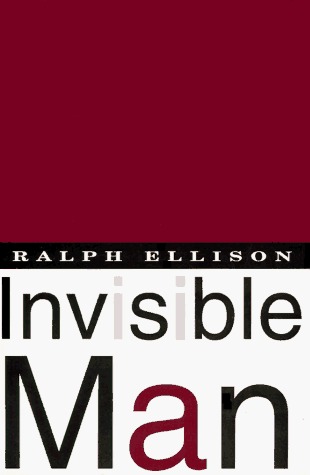Many of us may be familiar with the phenomenon of absolutely dreading reading a certain novel because of how boring it is but then somehow growing to appreciate the work after finishing it. That was how I felt about Invisible Man by Ralph Ellison.
 I was assigned this book as part of a summer assignment for AP English Literature and Composition prior to the twelfth grade. Reading this book was a hassle, as I had to force myself to take time from relaxing over the summer in order to complete what was, in my opinion, a waste of time.
I was assigned this book as part of a summer assignment for AP English Literature and Composition prior to the twelfth grade. Reading this book was a hassle, as I had to force myself to take time from relaxing over the summer in order to complete what was, in my opinion, a waste of time.
Looking back on it, however, I think I was critical of the book because I didn’t want to do any more work over the summer. I had been taking two summer courses at a local university, and I didn’t want to bother myself with anything else that would have taken away from enjoying my last summer of high school.
For that reason, I wasn’t a fan of Ellison’s writing while I was reading it. However, I came to realize later on into the school year that his writing was a lot more straightforward in comparison to the work of other authors I had to read for class.
My main complaint was that the plot seemed to be dragged out at certain points. I had to go back and reread these sections in order to comprehend what had occurred.
It wasn’t until I wrote the essay for this novel that I really grew to appreciate it. Ellison’s novel tells the story of an unnamed African American, referred to as the Invisible Man, living in the post-Civil War society of the 1930s.
Throughout the novel as a whole, I really admire how the Invisible Man’s journey starts off in the South, and he travels to Harlem, New York to continue his life. Eventually, he joins an organization called the Brotherhood, which is supposedly aimed at tackling the social issues that still exist in New York.
I personally found that broadly comparing the Invisible Man’s experiences in these areas of the story to be incredibly critical for understanding the point of the novel, as the Invisible Man faces oppression no matter where he associates himself.
The novel began unsurprisingly, as racist individuals still existed prominently in the South during the 1930s. But even in the North, where Americans proudly claimed to be loyal to the Union cause of the Civil War, the Invisible Man found himself and other African Americans oppressed in the workplace while he worked for a paint company. This oppression still persisted when he joined the Brotherhood, which was led by white men who posed the false pretense of understanding the social injustices faced by black individuals in American society.
Overall, Ralph Ellison demonstrated through his work that simply because discrimination was outlawed by the 1930’s, African Americans still struggled to be accepted in American society, a problem that still exists today. Because of this discrimination, the Invisible Man finds himself struggling with his sense of identity, as he has trouble distinguishing who he really is from who society wants him to be.

Once I stepped back and thought about the big picture of the book, I realized Ellison does an excellent job communicating his message to the audience. The message is still relevant today, even though people might not realize it, which is why I admire the novel as a whole. I rate Invisible Man as a 7/10 because it still isn’t exactly fun to read, but the main idea of the story is definitely one worth remembering.
After reading your commentary on this book, part of me really wants to read it. Although you say it was not very interesting, I think a deeper understanding of situations we would be otherwise oblivious and unexposed to is necessary for personal and societal growth. I wonder, was this book based on a real individuals experiences, or is it a realistic fictional piece that expresses the collective experience of those who were discriminated against in the 1930s. Perhaps it does not truly matter, as it seems the book is based in trying to reveal the world in an as real and unfiltered way as possible.
Yasmin, I haven’t read this book but I understand what you mean about certain books just being boring despite the deeper meaning. That’s how I felt about Death of a Salesman. I find that so many books we read in AP Literature had an underlying theme of the struggle to find one’s own sense of identity, like you described. I think I’ve mentioned A Doll House before, but it fits well here. Nora might not have been oppressed by society for her race like the Invisible Man, but she was sort of oppressed by her husband, and regarded as the inferior sex. She put herself in that bucket too. She didn’t have a good sense of identity and left her husband to fulfill that duty to herself. Another similarity I see with the Invisible man is with Hamlet. Hamlet has a lot of struggles, and although the main one is his existential crisis, I also think he doesn’t have a firm, confident sense of self-awareness. He doesn’t hold himself like he understands himself, even though there might have been a “method to his madness.” Overall, cool post as always, thanks for sharing!